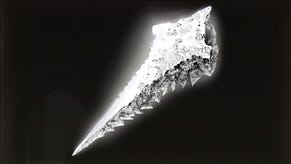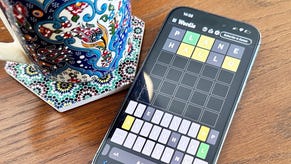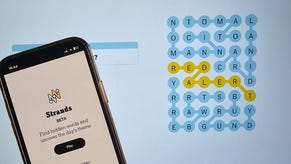Elden Ring Attribute Scaling explained
How to get the most out of your weapons.
Attribute Scaling in Elden Ring can help you make powerful builds.
Whilst confusing at first, understanding attribute scaling can help you to further improve your weapons and equipment.
This page explains how Attribute Scaling in Elden Ring works - and how you can manipulate it to your advantage.
On this page:
Looking for some direction? Our what to do first in Elden Ring, Elden Ring walkthrough, Site of Grace locations and main bosses in order pages can help.
How Attribute Scaling works in Elden Ring
When you go to a weapon in your equipment menu in Elden Ring - our image below uses the Uchigatana, which comes with the Samurai - you'll see that each type of attack power can have two number values.
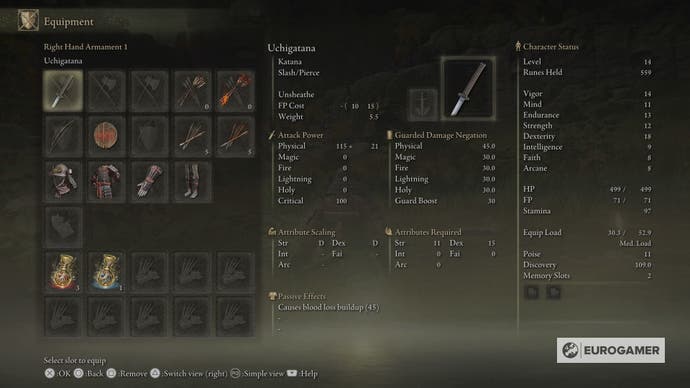
The value on the left is the weapon's base damage (115 in the image), which can be improved by upgrading the weapon itself with Smithing Stones. The value on the right relates to attribute scaling (21 in the image).
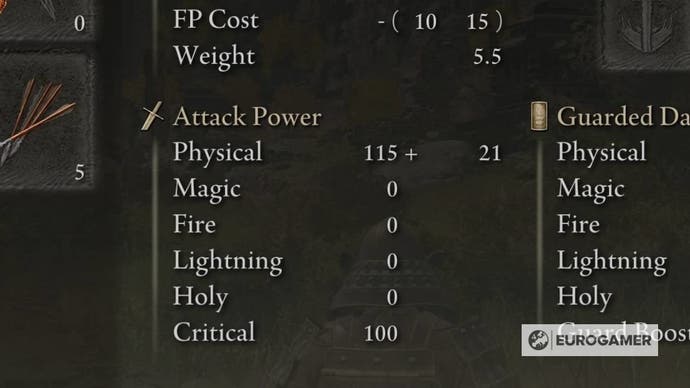
Now, this number can increase depending on two things:
- The letter grade in the "attribute scaling" submenu at the bottom of the image
- Your character's stat levels relating to the graded numbers
For the Uchigatana, you'll see the only grades it has are Strength rank D and Dexterity rank D, these stats having rankings means your Strength and Dexterity stats will impact the second number (21 in the image).
The higher a weapons letter rank, the higher the second number - and thus your damage output - will be for that weapon. So if you had a weapon with an attribute scaling Strength rank of A, it'll do more extra damage than if Strength was rank E, for example.
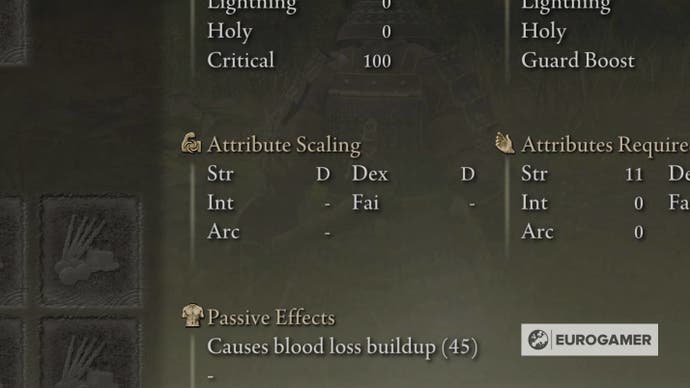
A weapon's extra damage value thus comes down to both the letter grade in attribute scaling and your character's level in that same stat. The higher both are, the better the weapon will be in combat.
How to change a weapon's attribute scaling values
Now we know how to view attribute scaling, there are multiple ways to change a weapon's values in Elden Ring to make the most of it:
Through upgrades at a blacksmith
Whilst Smithing Stones can be used to upgrade a weapon's base damage, using them will will also positively impact its attribute scaling as well.
To illustrate how this works, we'll use a base level Nagakiba sword.
In the image below, you'll notice that using a Smithing Stone [1] to level the Nagakiba to +1 increases its base damage from 115 to 121 (shown via the blue number). However, doing so also increases the number related to attribute scaling, as the added damage of 31 increases to 34.
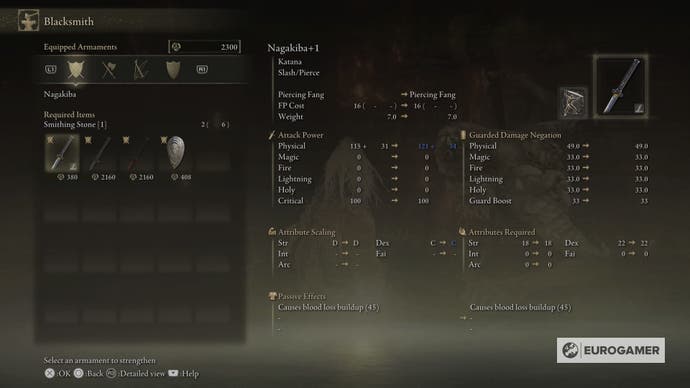
This is because a grade in the attribute scaling menu underneath also improves when you upgrade the weapon. You can see that whilst Dexterity stays at grade C, the added blue letter C shows that the scaling gets ever so slightly better thanks to the smithing upgrade.
In turn, the attribute scaling damage increases slightly as well.
Sometimes, upgrading a weapon at a blacksmith can even increase the actual letter grade of an attribute scale, as shown with the Moonveil in the image below. Upgrading it to Moonveil+10 would raise the Dexterity scale from C to B, further increasing it's damage output.
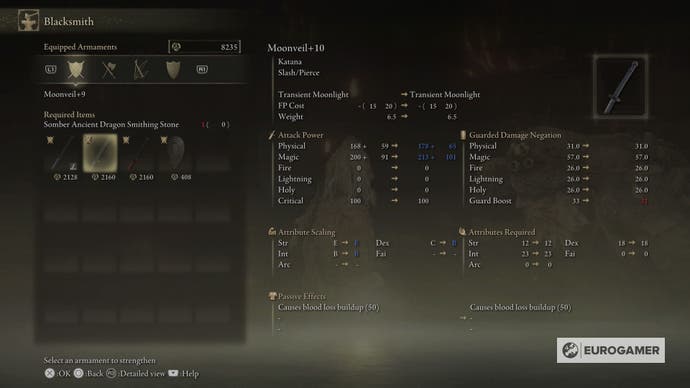
Through Ashes of War and Affinities
If you're happy to spend time experimenting, you can actually make your weapon even stronger and reflective of your character's stats by changing the letter grades present in the attribute scaling submenu.
To do this go to any Site of Grace and select the Ashes of War menu towards the bottom.
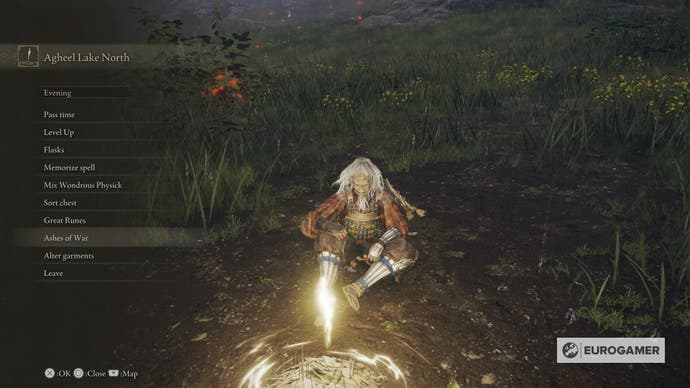
Now, not every weapon can have its Ashes of War changed, but you'll first be thrown into a menu splitting up the weapons you have equipped and everything else in your inventory.
For this example, we've again equipped the Nagakiba and will use that to illustrate how to change a weapon's attributes.
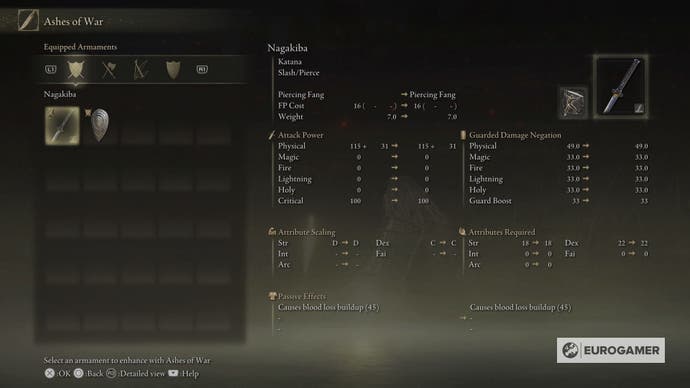
Note that which Ash of War you pick (as some are elemental for example) will impact how you change the weapon's attribute scaling. So take a look at them all and see what works for your build best.
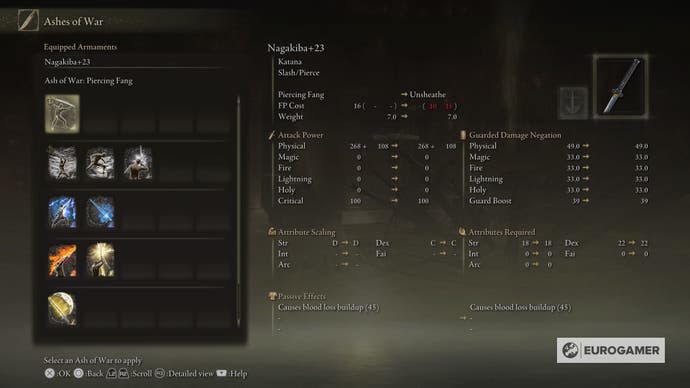
Once you've selected a weapon and an Ash of War, you'll be met with the Affinity Granted menu.
Here you'll see many different affinities, and each will change the letter values in the Attribute Scaling for that weapon. Some affinities will make certain stats scale better, worse, or even add a new one entirely.
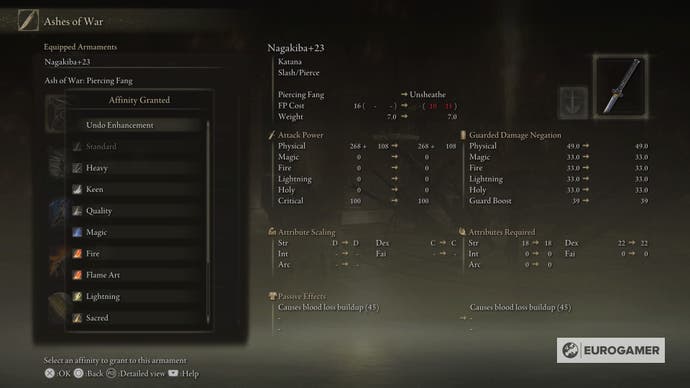
For example, selecting the "Heavy" affinity on the Nagakiba would increase the Strength scaling from D to B in this instance, but remove Dexterity scaling entirely.
If you were going for a Strength build, where you have invested a lot of Runes into the Strength stat and none into Dexterity, changing to this affinity would make the Nagakiba better.
This means changing affinities to better reflect what stats you've invested levels into will make a weapon much better. And of course, different Ashes of War gives you different special abilities for the weapon they are equipped to, so keep that in mind.
There's no hard and fast rules around attribute scaling in Elden Ring. A combination of weapon upgrades, exploring the Ashes of War menu, and taking the time to respec your character into stats for high attribute scaling equipment will help you wield powerful weapons in the game.


